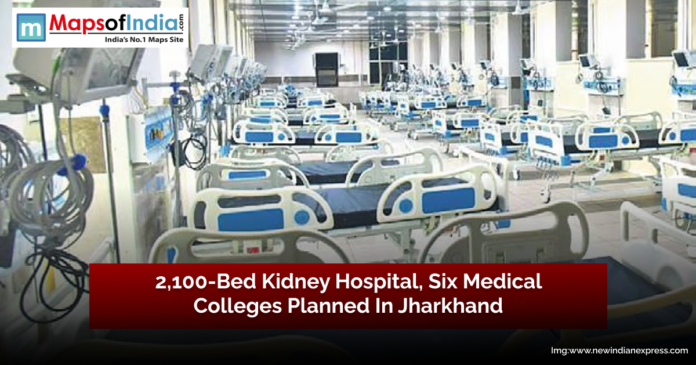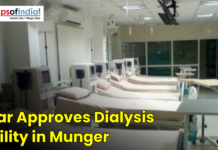The state government has announced the construction of a 2,100-bed super-speciality kidney hospital and six new medical colleges, which will bring a tremendous change in the healthcare sector of Jharkhand. This grand proposal, announced by Health Minister Dr. Irfan Ansari, is a game-changer for the state, which has a history of poor healthcare facilities and limited access to high-tech medical services. The new kidney hospital will be one of the largest kidney hospitals in the country, offering comprehensive treatment for kidney diseases, kidney dialysis services, and kidney transplantation all under one roof. The project will help alleviate the pressure on patients who presently have to travel to other states to receive critical treatment and ensure that the quality of healthcare is on par with that of the world.
The new medical colleges located across the state are also included in the announcement. These colleges will certainly not only boost the number of doctors and healthcare professionals being trained in Jharkhand, but will also serve to bridge the urban-rural divide in healthcare delivery. According to the government, there are strategic districts where it will establish medical colleges, and the dream is to make healthcare education affordable to more people and enhance local hospitals with improved infrastructure and human resources.
Moreover, besides these significant projects, the government has also unveiled the intention to ensure that MRI and CT scan facilities are obligatory in all district hospitals. This is done to make sure that the high-quality diagnostic services are brought nearer to the residences of people to save time in treatment and to prevent the unnecessary expense of long-distance transportation to take simple examinations. The health department also plans to increase emergency services by adding 200 ambulances to enhance the response time during an emergency situation.
Another larger vision, to make Jharkhand a centre of modern healthcare, has also been cited as including a project called a Medico City. The state is making efforts to generate a combined healthcare ecosystem by merging super-speciality hospitals, medical colleges, diagnostic centres and enhanced networks of ambulances. The government has set a target of the completion of these projects within the next two years and hopes to see long-pending reforms in the health sector into fruition.
When these initiatives are put into effect, they will not only transform the healthcare scenario in Jharkhand, but they will also make the state a hub of specialized treatment and medical education. This will be a promise of a healthier and safer future for millions of its residents.










